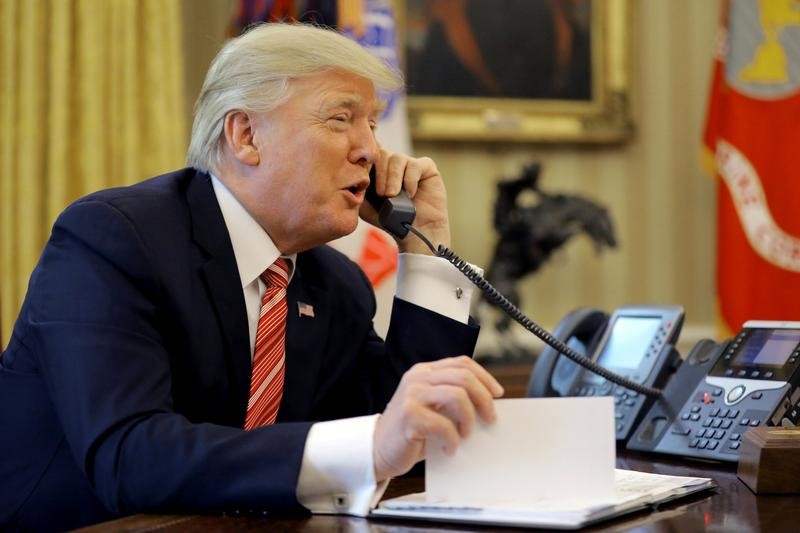PARIS (Reuters) - The United States has yet to say whether President Donald Trump will accept an invitation by President Emmanuel Macron to attend France's annual July 14 Bastille day celebrations, government spokesman Christophe Castaner said on Wednesday.
"We confirmed this week the invitation and our services are working on the basis that president trump comes," Castaner told reporters at a weekly news conference. "It's neither confirmed today nor rejected."
Macron's office said on Tuesday it had invited Trump on two occasions to attend the celebrations next month during which the U.S. military will take part to mark 100 years since it joined World War 1.
Macron appears to be broadly aligning his foreign policy with U.S. priorities of tackling terrorism while seeking better ties with Russia.
However, he publicly clashed with Trump after the latter said he would pull out of a global accord on action to combat climate change.
Diplomats said they saw a potential Trump visit as a way of reaffirming close military ties between the two countries.
The July 14 festivities see thousands of men and women from France's army, navy and air force march down the Champs Elysees avenue in the French capital in the oldest and largest military parade in Western Europe.
It commemorates the storming of the Bastille prison by angry crowds in 1789, helping kick off the French Revolution. The Bastille prison, where opponents of the monarchy were kept, was targeted for symbolizing royal rule.
Plans for Trump to visit Britain have yet to be finalised despite an invitation by Prime Minister Theresa May when she met him in Washington in January.
That possible visit has met some criticism in Britain, prompting fears of protests, a risk he runs in France too.
"Donald Trump is violent and has no reason for being here," a far-left lawmaker and former French presidential candidate said on Wednesday.

"We will host him with dignity as he is the president of the United States, but no he is not welcome. That's clear," Jean-Luc Melenchon, leader of the France Unbowed movement, told Europe 1 radio.